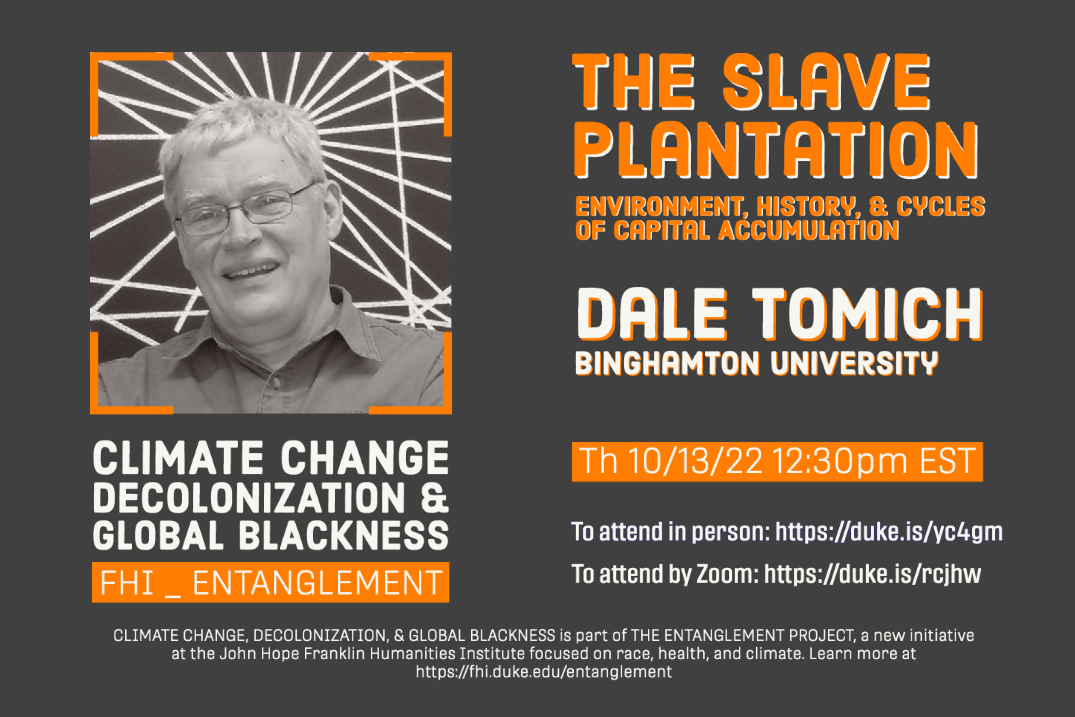The Slave Plantation: Environment, History and Cycles of Capital Accumulation

Please join the Climate Change, Decolonization, and Global Blackness Lab (CCDGBL) for "The Slave Plantation: Environment, History and Cycles of Capital Accumulation" by Dale Tomich, Emeritus Professor of Sociology, at Binghamton University.
Register here to attend in person (masks required, lunch provided):
https://duke.is/yc4gm
Register here to attend by Zoom:
https://duke.is/rcjhw
Dale Tomich received his PhD in history from the University of Wisconsin-Madison. He is Emeritus Professor of Sociology and former Deputy Director of the Fernand Braudel Center for the Study of Economies, Historical Systems, and Civilizations. He is author of Slavery in the Circuit of Sugar: Martinique in the World-Economy, 1830-1848; Through the Prism of Slavery: Labor, Capital and World Economy; Espacios de esclavitud: tiempo / tiempos del capital; and Reconstructing the Landscapes of Slavery: A Visual History of the Plantation in the Nineteenth-Century Atlantic World (with Rafael de Bivar Marquese, Reinaldo Funes Monzote, and Carlos Venegas Fornias), as well as numerous articles and chapters on the history of the capitalist world-system, Atlantic slavery and methods of historical inquiry.
The presentation examines the history of the slave plantation as an integral part of the capitalist world-economy from the fifteenth through the nineteenth centuries. It explores the changing relation between the production of specific crops, environment, and the demand for slave labor over long historical time.
---
Convened by Michaeline Crichlow (Professor of African and African American Studies), the Decolonization and the Climate Crisis Lab focuses on the so-called Anthropocene and operates with the premise that the Climate catastrophe cannot be thought outside of the context of Empire and the forms of racialization central to global capitalism, that includes the degradation of peoples, ecosystems and lands facilitated by states in the global North.
The CCDGB is part of The Entanglement Project, a new initiative at the John Hope Franklin Humanities Institute focused on race, health, and climate.






